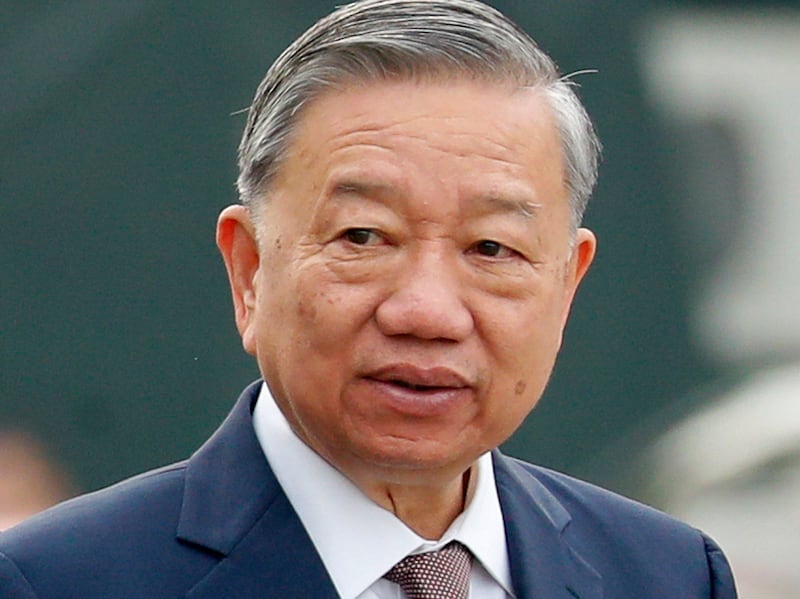Read a version of this story in Vietnamese
A Vietnamese government restructuring proposal includes the shifting of authority over state-owned MobiFone –- the country’s third-largest telecommunications provider –- to the Ministry of Public Security.
Such a move could allow the ministry to easily obtain personal information for police investigations, several commentators on Radio Free Asia’s Facebook page said this week.
Those fears are partly based on the government’s recent efforts to tighten control on what can be posted on global internet sites such as YouTube.
A decree in November requires cross-border social media operators such as Meta’s Facebook and Alphabet’s Google to authenticate accounts by requiring Vietnamese users to provide a mobile phone or personal identification number.
Vietnamese authorities can demand access to that information. The decree raised concerns about the government’s growing use of the law to crack down on freedom of expression.
Why is Vietnam streamlining its government?
General Secretary To Lam announced the ambitious state restructuring in December. The plan includes the elimination of parliamentary committees, the shuttering of government offices and party committees and the closure or consolidation of five of 21 ministries, according to state media. The number of civil servants is expected to be reduced by a fifth.
To Lam’s goal is to complete the plan before the next Communist Party of Vietnam National Congress, planned for early 2026, according to Carl Thayer, a veteran Vietnam watcher and emeritus professor at the University of New South Wales in Canberra, Australia. The Congress is expected to decide whether to elect him to a full term at that time.

To Lam was named to the most powerful position in the country in August following the death of his predecessor. He told state media at the time that large national institutions like the government must change before Vietnam can become a wealthy, democratic, just and civilized country.
The restructuring aligns with the party’s goal of transforming Vietnam into a high middle-income country with modernized industries by 2030 and a developed, high-income nation by 2045, Thayer said.
To Lam also pledged in August to build a strong Communist Party of Vietnam, according to state media.
Why would the Ministry of Public Security be given authority over MobiFone ?
In 2016, MobiFone acquired 95 percent of Audio Visual Global JSC, or AVG, a privately run company that provided a paid television service. MobiFone intended to rebrand the television service to “MobiTV.”
A follow-up police investigation found that more than US$3 million in bribes were paid to the then-minister of information and a top deputy to approve the sale without seeking proper permission from the Ministry of Public Security.
The Vietnam Government Inspectorate later found that AVG was in poor financial condition. The sale was nullified, resulting in the loss of more than US$300 million to the state budget.
To Lam, who was a top deputy at the Ministry of Public Security at the time, is believed to have been involved in the signing of official documents in late 2015 that paved the way for the deal.
One document affirmed that the agreement complied with existing laws and regulations and stated that the sale price was reasonable. The document was classified as secret. Another document signed by To Lam in March 2015 was also classified as secret and directed the Ministry of Information to prohibit media organizations from reporting on the sale.
To Lam was never charged or implicated in the investigation, which resulted in long prison terms for the two Ministry of Information officials. His recent rise to the top of Vietnam’s leadership came amid an anti-corruption campaign that saw eight members of the Politburo resign between December 2022 and May 2024.
MobiFone remains profitable, which could benefit the Ministry of Public Security and help strengthen To Lam’s continued influence within the police force.
Will MobiFone users stay with its cellphone service?
A Hanoi lawyer who has used MobiFone’s cellphone plans for five years said he was concerned that the Ministry of Public Security “could directly access user databases” -– something that could “undermine the privacy and security of customers’ personal data,” he said.
“They could monitor users without their knowledge,” he told RFA, requesting anonymity for personal reasons.
RELATED STORIES
To Lam elected as Vietnam’s top leader
Vietnamese Former Trade Official Targeted for Arrest in Corruption Probe
Former Vietnamese Government Minister Draws Life Term in Corruption Case
Le Hong Phong, a security guard in Hanoi, said he has been using MobiFone for over 20 years but would switch providers immediately if it is officially transferred to the Ministry of Public Security because he doesn’t police to use “users’ information against themselves.”
But one commentator on RFA’s Facebook page said this week that if people don’t break the law, they shouldn’t be worried about government monitoring.
“If I don’t break the law and live by it, why should I be afraid of using MobiFone’s service?” said the commentator whose user name was listed as T.V.
Another Facebook commentator, X.L., noted that other mobile networks in Vietnam are also assumed to include some kind of government surveillance of private data.
“Every provider requires users to register with their names and take photos of their faces and IDs,” he said. “Things are fully monitored.”
Translated by Anna Vu. Edited by Matt Reed.
